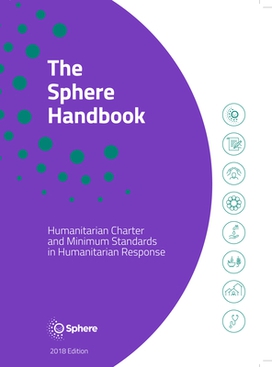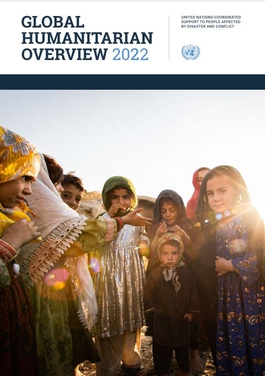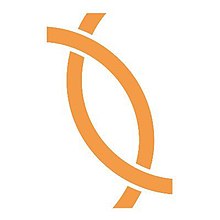
An internally displaced person (IDP) is someone who is forced to leave their home but who remains within their country's borders. They are often referred to as refugees, although they do not fall within the legal definitions of a refugee.

Humanitarian aid is material and logistic assistance to people who need help. It is usually short-term help until the long-term help by the government and other institutions replaces it. Among the people in need are the homeless, refugees, and victims of natural disasters, wars, and famines. Humanitarian relief efforts are provided for humanitarian purposes and include natural disasters and human-made disasters. The primary objective of humanitarian aid is to save lives, alleviate suffering, and maintain human dignity. It may, therefore, be distinguished from development aid, which seeks to address the underlying socioeconomic factors which may have led to a crisis or emergency. There is a debate on linking humanitarian aid and development efforts, which was reinforced by the World Humanitarian Summit in 2016. However, the conflation is viewed critically by practitioners.

Islamic Relief Worldwide is a faith-inspired humanitarian and development agency which is working to support and empower the world's most vulnerable people.
The Tsunami Evaluation Coalition (TEC) was a unique learning and accountability initiative in the relief and development sector. It was first established in February 2005 to carry out joint evaluations of the response to the Asian earthquake and tsunamis of 26 December 2004.

Medair is an international non-governmental organisation (INGO) whose purpose is to relieve human suffering in some of the world's most remote and devastated places. Medair aims to assist people affected by natural disasters and conflict to recover with dignity through the delivery of quality humanitarian aid.
There are a number of meanings for the term humanitarian. Here, humanitarian pertains to the practice of saving lives and alleviating suffering. It is usually related to emergency response whether in the case of a natural disaster or a man-made disaster such as war or other armed conflict. Humanitarian principles govern the way humanitarian response is carried out.

Humanitarian Accountability Partnership International, established in 2003, was the humanitarian sector's first international self-regulatory body. A multi-agency initiative working to improve the accountability of humanitarian action to people affected by disasters and other crises, HAP members ranged from organisations with a mandate for emergency relief and development activities to institutional donors. The organisation aimed to strengthen accountability towards those affected by crisis situations and to facilitate improved performance within the humanitarian sector. The ultimate goal of the organisation was to uphold the rights and the dignity of crisis-affected populations across the world.

The United Nations World Humanitarian Summit (WHS) was held in Istanbul, Turkey, on May 23 and 24, 2016. The summit was an initiative of the Secretary-General of the United Nations Ban Ki-moon and was organized by the United Nations Office for the Coordination of Humanitarian Affairs.
The Core Humanitarian Standard Alliance, known as the CHS Alliance, is a network of non-governmental organizations working in humanitarian aid.
Hugo John Robertson Slim is a British academic and policy advisor in International Relations specialising in the ethics of war and humanitarian aid.
A global ceasefire is a temporary stoppage of war on a planetary scale, i.e., by every country. A global ceasefire was first proposed by United Nations Secretary-General António Guterres on Monday, 23 March 2020, as part of the United Nations' response to the COVID-19 pandemic. On 24 June 2020, 170 UN Member States and Observers signed a non-binding statement in support of the Appeal, and on 1 July 2020, the UN Security Council passed a resolution demanding a general and immediate cessation of hostilities for at least 90 days and requesting that the UN Secretary-General accelerate the international response to the coronavirus pandemic.
Ben Ramalingam is a British researcher, strategist, innovator and author, currently Director of Strategy at British Red Cross, senior research associate at the Overseas Development Institute Politics and Governance programme and advisor to the OECD Development Assistance Committee on innovation investments for development, humanitarian and human rights issues.

The Grand Bargain: Agenda for Humanity, usually called the Grand Bargain, is an agreement to reform the delivery of humanitarian aid, that was struck at the World Humanitarian Summit in May 2016. The agreement contains 51 specific commitments, grouped into ten focus areas, with activity targets to be completed by January 1, 2020.

The Network for Empowered Aid Response, often called the NEAR Network, is a group of humanitarian civil society organisations based in Africa, Asia, and the Middle East.

The Humanitarian Cluster System is a system, used by the United Nations Office for the Coordination of Humanitarian Affairs, to coordinate multi-agency responses to large humanitarian emergencies.

The Sphere Handbook: Humanitarian Charter and Minimum Standards in Humanitarian Response often called the Sphere Standards is a textbook of minimum standards in humanitarian aid published by the Sphere Association.

The State of the Humanitarian System is a recurring report that was first published by ALNAP in 2010 and is updated every two or three years.

Global Humanitarian Overview is an annual report published by the United Nations Office for the Coordination of Humanitarian Affairs.

Humanitarian Networks and Partnerships Weeks (HNPW) is an annual event organized the United Nations Office for the Coordination of Humanitarian Affairs.
Humanitarian protection is the act of promoting and ensuring the legal rights of people affected by humanitarian crises.













